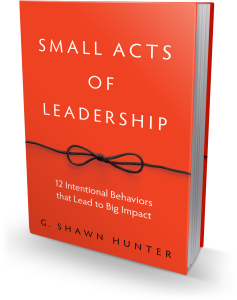A Trick to Avoid Frustration and Stress
Someone in a big SUV, talking on the phone, oblivious to everyone around them, just cut you off. How do you feel? Just today, in a meeting, your boss contradicted you, again. How do you feel?
That imbecile over in product management just got the promotion you wanted. How about now? The plane has just landed, and already, the guy behind you is talking loudly on the phone while you taxi to the gate. Now, how do you feel?
The world is uncertain. People are irrational. Traffic happens. Cell phone batteries sometimes die.
Here’s an idea: when we get annoyed, frustrated, angry, and miserable over events and circumstances in our lives, we are also being unfair to ourselves. By berating ourselves, we are being unethical and unjust to ourselves. And when we make ourselves miserable, we make the people around us miserable. Instead, be kind to yourself, and find the kindness in others.
It wasn’t the traffic, it was our reaction to the traffic. It wasn’t losing that big contract that made us dejected. Our expectation made us feel dejected and miserable.
Albert Ellis is regarded as one of the most influential psychologists of the 20th century. One of his signature ideas is called Rational Emotive Behavior Therapy (REBT), which has been used to effectively to change the attitudes and behaviors of millions of people.
The promise of REBT is this: no matter how badly you sometimes think about yourself, and no matter how horrible others sometimes treat you, and no matter how awful our circumstances are…. we always have the power to change our feelings of hostility, despair, or stress. Always.
Dr. Ellis doesn’t go all zen meditative to the extent that he suggests you deny all of your feelings and emotions and view the world utterly impassively, like a robot. Not at all. REBT recognizes that caution, concern or suspicion, are normal emotions which are useful for making decisions. Yet allowing those emotions to turn into outright panic, dread or despair is not useful. It’s worse. It’s self-destructive.
Here’s a short version of how it works. First, imagine an unfortunate event occurring in your life. Let’s say, you break your leg badly and have to be in a wheelchair, and work through physical therapy for months. How do you think about this hypothetical circumstance?
Healthy concern or annoyance self-talk might sound like “Wow. What a bummer. I guess my weekly basketball game is on hold, but I can do many enjoyable and new things over the next few months.” Or “This sucks and is going to take some work, but I’ll have a little more time to work on my other projects.”
The difference is that little “but” inserted where we add the positives and hopeful outcomes. A healthy reaction acknowledges circumstances and adjusts to anticipate optimistic outcomes and choices.
Next, look for should, must, and ought, in our self-talk. When we think, “My boss must never speak to me that way!” or “I should get that promotion. I deserve it!”, we are extending our own wishes and preferences to the behavior of others. And we can’t control the behavior of others. We can only control how we react and feel in the face of circumstances.
Should, must, and ought are absolute and rigid values. As Dr. Ellis writes:
“When you insist, however, that you always must have or do something, you often think in this way: “Because I would very much like or prefer to have success, approval, or pleasure, I absolutely, under practically all conditions, must have it. And if I don’t get it, as I completely must, it’s awful, I can’t stand it, I am an inferior person for not arranging to get it, and the world is a horrible place for not giving me what I must have! I am sure that I’ll never get it, and therefore can’t be happy at all!”
– Albert Ellis, Ph.D., from How to Stubbornly Refuse to Make Yourself Miserable About Anything. Yes, Anything!
When we think in these rigid ways we become anxious and self-pitying. Try instead Dr. Ellis’ prescription of self-talk that goes like this: “I would very much like or prefer to have success, approval, or comfort, but I don’t have to have it. I won’t die without it. And I could be happy (though not as happy) without it.”
The kinds of thoughts that create anxiety are those that demand success or approval, such as “I must impress everyone at the meeting because I’m smart.” or “This deal will propel me to the top of my team, so I have to win it!”
The advice is this: turn should, must, ought to, and have to statements into preferences instead of demands. Accept what is going on (WIGO) around you without feeling the need to control people and circumstances.
One of Dr. Ellis’ most famous quotes is:
There are three musts that hold us back: I must do well. You must treat me well. And the world must be easy.
- Join my Email updates for weekly optimism and life hacks
- Learn more about my Speaking work
- Pre-order Small Acts of Leadership
-
- ____________________________________________________

Twitter: @gshunter
Say hello: email@gshunter.com
Web: www.shawnhunter.com



